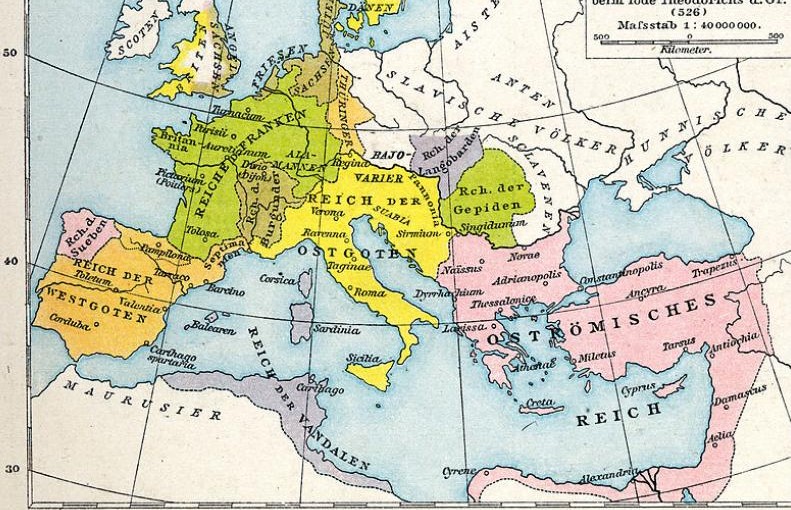Theodoric grew up as a hostage in Constantinople, received a privileged education.
Emperor Zeno subsequently gave him the title of Patrician and the office of Magister militum (master of the soldiers), and even appointed him as Roman Consul. In 488, Emperor Zeno ordered Theoderic to overthrow the German Foederatus Odoacer, who had likewise been made patrician and even King of Italy, but who had since betrayed Zeno. After a victorious three-year war, Theoderic killed Odoacer with his own hands, settled his 200,000 to 250,000 people in Italy, and founded an Ostrogothic Kingdom based in Ravenna.
While he promoted separation between the Arian Ostrogoths and the Roman population, Theoderic stressed the importance of racial harmony, though intermarriage was outlawed. Seeking to restore the glory of Ancient Rome, he ruled Italy in its most peaceful and prosperous period since Valentinian, until his death in 526.
Theodoric is remembered as a patron of learning. His court fostered such scholars as Cassiodorus, whose diplomatic correspondence in the name of the king is marked by ornate Latin and contains letters addressed to all variety of officials, from low-level military and bureaucratic functionaries to Emperors and kings such as Clovis. The philosopher Boethius was also a court treasure and friend of the king.
Throughout his reign, Theodoric put much effort into building and restoration throughout Italy, but particularly in Ravenna, his capital. Several buildings built by Theodoric, including the church of San Apollinaire, famed for its mosaics, stand to this day.
